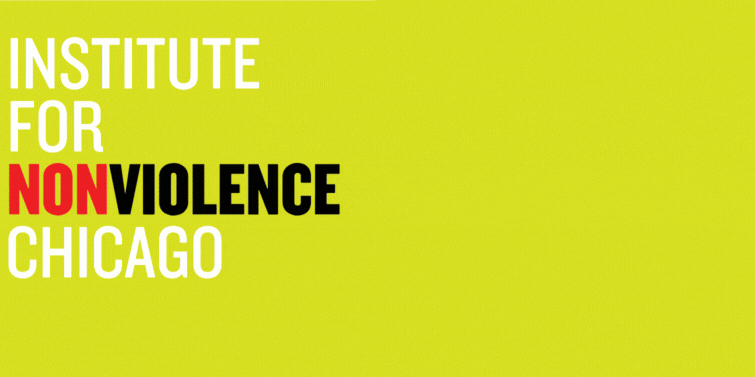
COMMUNITY CARE IS OUR PATHWAY TO VIOLENCE PREVENTION.

Chicago has the people, tools, and resources to eliminate gun violence, but success requires us to work together in a new way.
The criminal legal system alone can’t solve the cycle of gun violence in Chicago. Dr. Martin Luther King Jr. once popularized the vision of the Beloved Community—a group of people who are actively committed to the ways of nonviolence and live that out through their values and actions.
A community that works toward nonviolence together is the way forward.
Our founder and executive director, Teny Gross co-created a best-in-class model for reducing gun violence in Chicago that emphasizes collective responsibility—the Civilian Architecture of Violence Reduction.
Inspired by the Beloved Community and supported by similar models in Boston, Providence, Los Angeles, and New York City, the Civilian Architecture is a collaborative network that brings individuals and institutions together to end gun violence in these communities.
Austin, West Garfield Park, Back of the Yards, and Brighton Park are among Chicago neighborhoods with the highest concentrations of violence. By coordinating with key partners to focus on violence intervention, victim advocacy, mental health support, drug treatment, domestic violence counseling, and job readiness, we can address trauma in our communities and safeguard our streets.
CIVILIAN ARCHITECTURE PARTNERS










Teny Gross, Founder and CEO of the Institute for Nonviolence Chicago discusses the growth of Chicago’s Civilian Architecture and summarizes the coordinated and sophisticated plan for ending cycles gun violence in our city.
THE CIVILIAN ARCHITECTURE DRIVES RESULTS.
Nearly 2,000 former drivers of violence are now employed or contracted in CVI work throughout the city. Along with the business and philanthropic communities, law enforcement, and elected officials, the Civilian Architecture is shaping the future of CVI and violence reduction efforts in Chicago. As a result of the Civilian Architecture:
The State of Illinois created its first Office of Firearm Violence Prevention.
CVIs have a professional understanding with the Chicago Police Department & work in tandem.
Former Vice President Kamala Harris supports the funding and expansion of CVI programs nationwide.
Chicago’s corporate community is engaging CVI in meaningful ways to increase employment opportunities for those at highest risk.
CP4P launched the Metropolitan Peace Academy, a multi-disciplinary training platform designed to train and develop leadership among practitioners to enhance their ability to implement best practices in violence reduction.
The University of Chicago Crime Lab created the CVI Leadership Academy.
Northwestern University has dedicated researchers to evaluating the efficacy of CVI programs across the city.
Our collaborative approach to reducing gun violence in Chicago bolsters job training, mental health support, education, and housing for those affected by gun violence. Communities become more resilient and supported in turn. This work aims to go beyond violence reduction. It’s a road to healing that addresses systemic root-causes that drive violence, and replaces them with opportunities—fully developing human potential.

